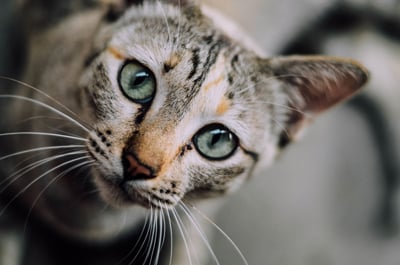
Catnip is a herb that belongs to the mint family and is known for its effects on cats. When cats come into contact with catnip, they can exhibit a range of behaviors that can be entertaining for cat owners to watch.
The active ingredient in catnip is a chemical compound called nepetalactone, which is found in the leaves, stems, and seeds of the plant. When a cat sniffs or chews on catnip, the nepetalactone is released, which then interacts with the cat's olfactory system.
The effects of catnip on a cat can be varied, but most cats exhibit some or all of the following behaviors:
-
Licking, Rubbing and Rolling: Many cats will start to lick or rub their noses and faces against the catnip plant. They may also roll around on the ground, paw at the plant, or even chew on it.
-
Increased Energy: Catnip can also cause an increase in energy in cats, leading them to become more playful and active than usual. They may run around, chase imaginary objects, or engage in rough play with other cats.
-
Calming Effects: While catnip can be stimulating, it can also have a calming effect on some cats. This is because nepetalactone can mimic a pheromone that cats produce when they feel happy or content. As a result, some cats may become more relaxed and even fall asleep after being exposed to catnip.
-
Vocalizations: Some cats may become more vocal after being exposed to catnip. They may meow more than usual or make other noises to express their excitement.
-
Short Duration: The effects of catnip typically only last for a short period of time, usually around 10-15 minutes. After this time, the cat will usually lose interest in the catnip and return to their normal behavior.
It's important to note that not all cats are affected by catnip in the same way. Some cats may show no interest in catnip at all, while others may exhibit extremely exaggerated behaviors. The sensitivity to catnip is thought to be genetic and is estimated that 70-80% of cats will have some sort of reaction to catnip.
While catnip is generally considered safe for cats, it's important to monitor your cat's behavior after exposure. Some cats may become aggressive or overly excited, while others may experience gastrointestinal upset. If your cat exhibits any unusual behavior after being exposed to catnip, it's best to contact your veterinarian.
In conclusion, catnip is a herb that can have a variety of effects on cats.
